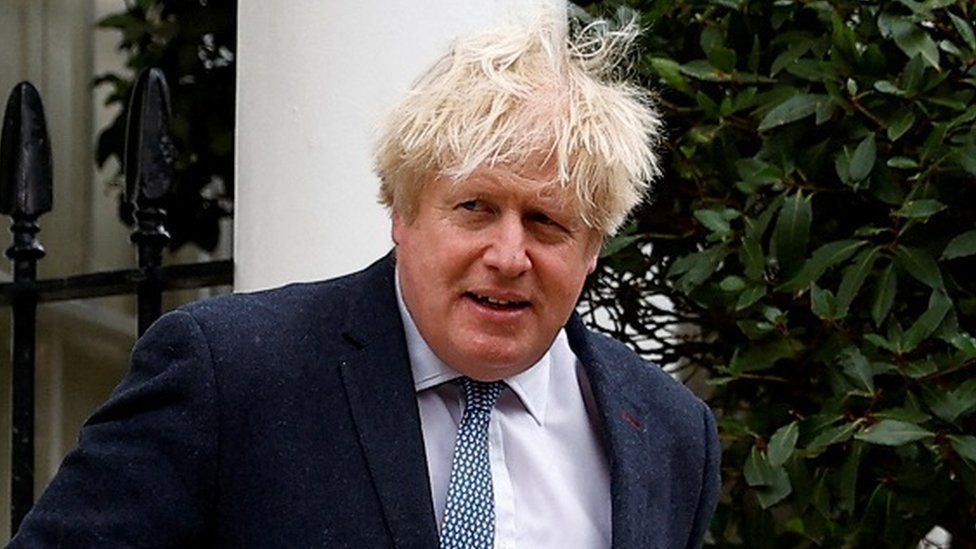ARTICLE AD BOX
 Image source, Reuters
Image source, Reuters
By Nick Eardley
BBC chief political correspondent
In two weeks' time, one of the most important inquiries in recent British history will start holding public hearings.
Senior government ministers - who made life-or-death decisions - will be among those giving evidence.
The inquiry is supposed to help the government and the public work out what it got right and wrong - before, during and after the Covid-19 pandemic.
But, already, there is an almighty row over what the inquiry should have access to.
This isn't just about process. Let me explain.
The inquiry's chair Baroness Hallett is demanding unredacted WhatsApp messages and notebooks from Boris Johnson.
They cover the period of the pandemic when he was prime minister and making key decisions.
She is adamant that it is her job to decide what is and isn't relevant to her inquiry.
The government disagrees - and speaking to people close to the process, I don't think they're going to back down.
Who is going to win?
They argue that they need to protect the privacy of ministers and others. They say they will not send information that is "unambiguously irrelevant" to the inquiry.
Image source, UK Parliament
Image caption,Baroness Hallett has made her position clear
Insiders have told the BBC they will send relevant messages - for example, WhatsApp conversations that led to a policy decision. They would not send messages involving personal conversations.
But they think that decision is for the government - and its lawyers - to make.
The more likely answer seems to be the Covid inquiry.
It has legal powers to compel people to produce documents. It also had a pretty broad remit under the terms established by the government.
And some senior Conservatives are now urging the Cabinet Office to back down.
William Wragg is the chair of the the Commons public administration and constitutional affairs committee. It's his job is to look at constitutional issues like this.
He told me: "If the inquiry requests documents and info - then whoever it has asked should comply".
He said this included the government.
Image source, PA Media
Image caption,Matt Hancock says he is happy to share all messages in full
Caroline Noakes - another select committee chair - said on Tuesday night that Baroness Hallett was unlikely to roll over and there would be "less pain for the government if they hand [the messages] over quickly".
Potential legal battle
Former Conservative health secretary Matt Hancock is among those who have made clear they are happy to share unredacted messages in full.
Boris Johnson's allies have also made clear he is happy to send more information.
So where does this leave the government?
Potentially in a tricky place.
If it doesn't budge - as looks likely at the moment - it faces the prospect of a legal battle with an inquiry looking into how the government functioned during a public health crisis that changed all of our lives.
If it loses, that would be an embarrassing defeat. Questions would be asked about using public money to fight the case.
If it wins, it's quite possible the Covid inquiry will be seriously undermined.
Will bereaved families who have demanded full transparency accept it? Where would such a ruling leave inquiry chair Lady Hallet, who has made her position clear?
Cabinet minister Mel Stride earlier questioned the need for "irrelevant" documents to be provided to the inquiry - saying it would not add value.
He told BBC Radio 4's Today programme the government would be "robust and open and candid" in its dealings with the inquiry.
But he drew a distinction with information that was "unambiguously, entirely irrelevant".
He added: "It seems to me to request lots and lots of that kind of data is not something which is adding any value".
The government now has until 16:00 BST on Thursday to cooperate with the inquiry - or produce documents showing why it can't.
At the moment, it says it doesn't have the full WhatsApps and diaries the inquiry is demanding.
But this row could drag on for a lot longer.

 1 year ago
25
1 year ago
25








 English (US) ·
English (US) ·